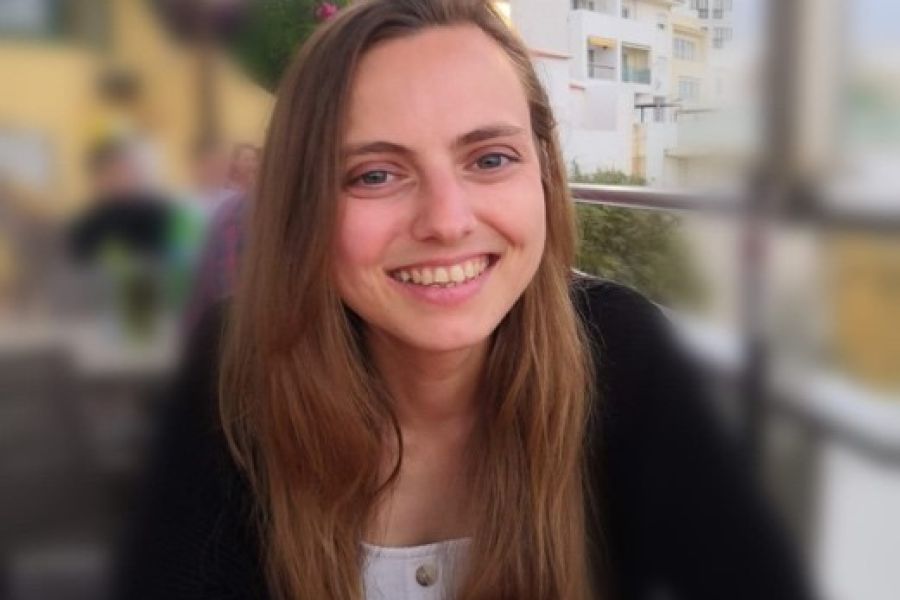Light pollution under water? Danielle studies the effects on migrating fish

On January 1st, 2022, Danielle Crowley started working as a PhD candidate at the Institute of Biology Leiden. She studies fish and focusses on the effects of light at night. During her project she will be supervised by dr. Christian Tudorache and prof. Joke Meijer.

Tell us a little about yourself, who are you?
My name is Danielle Crowley, I’m 28 years old and I’m from Essex, England. I really love going on adventures, especially when it involves snorkeling/swimming in the ocean. When on land, I enjoy hiking with my dog, bouldering/climbing and hanging out with friends.
What is your background?
My background is in biology and more specifically marine biology after completing my masters in 2020. I spent a lot of my bachelors learning about habitat destruction and anthropogenic pressures, which ultimately lead me to conservation work with sea turtles in Greece. That was where I saw first hand the impact of light pollution. After this, I became very interested in the influence light (both natural and artificial) has on aquatic habitats and decided to study this further in my masters, where I conducted multiple light focused projects
What is your project about?
I will be working at the Institute of Biology, Leiden and my project will address the effects of light pollution on daily and seasonal rhythms of fish. There has been a drastic increase in the use of artificial light in order to accommodate human activity, which has in turn disturbed the biological clock and potentially compromised an organism’s ability to thrive in its environment. Therefore, we will use innovative techniques in both field and laboratory settings to study the effects of light pollution on the physiological and behavioural traits of diurnal and nocturnal migrating fish. With our results we hope to highlight areas of concern and advise on the implementation of effective new strategies to mitigate the effects of light pollution on the aquatic environment.
When did you first hear about the biological clock?
Since a kid I have been a bit obsessed with everything natural world and have watched a lot of documentaries. It was in one of these where I first learned about the concept of the biological clock. Once in university, I learned about this more in depth and probably understood it a little better too.
What is something that people should know about you?
I don’t know about interesting but it is fun. I am strangely good at packing moving vans. To me it is advanced, real-life Tetris and I love the challenge of making everything fit. I am the go-to person for my friends when they are moving, though the fact that I usually drive the van is probably part of it too, haha!
You can contact Danielle through d.crowley@biology.leidenuniv.nl

The BioClock Consortium is funded by the NWA-ORC programme of the Dutch Research Council (NWO; project number 1292.19.077).